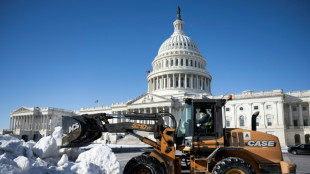
-
 Norway crown princess's son pleads not guilty to rapes as trial opens
Norway crown princess's son pleads not guilty to rapes as trial opens
-
Russia resumes strikes on freezing Ukrainian capital ahead of talks

-
 Malaysian court acquits French man on drug charges
Malaysian court acquits French man on drug charges
-
Switch 2 sales boost Nintendo profits, but chip shortage looms

-
 China to ban hidden car door handles, setting new safety standards
China to ban hidden car door handles, setting new safety standards
-
Switch 2 sales boost Nintendo results but chip shortage looms

-
 From rations to G20's doorstep: Poland savours economic 'miracle'
From rations to G20's doorstep: Poland savours economic 'miracle'
-
Russia resumes strikes on freezing Ukrainian capital

-
 'Way too far': Latino Trump voters shocked by Minneapolis crackdown
'Way too far': Latino Trump voters shocked by Minneapolis crackdown
-
England and Brook seek redemption at T20 World Cup

-
 Coach Gambhir under pressure as India aim for back-to-back T20 triumphs
Coach Gambhir under pressure as India aim for back-to-back T20 triumphs
-
'Helmets off': NFL stars open up as Super Bowl circus begins

-
 Japan coach Jones says 'fair' World Cup schedule helps small teams
Japan coach Jones says 'fair' World Cup schedule helps small teams
-
Equities and precious metals rebound after Asia-wide rout

-
 Do not write Ireland off as a rugby force, says ex-prop Ross
Do not write Ireland off as a rugby force, says ex-prop Ross
-
Winter Olympics 2026: AFP guide to Alpine Skiing races

-
 Winter Olympics to showcase Italian venues and global tensions
Winter Olympics to showcase Italian venues and global tensions
-
Buoyant England eager to end Franco-Irish grip on Six Nations

-
 China to ban hidden car door handles in industry shift
China to ban hidden car door handles in industry shift
-
Sengun leads Rockets past Pacers, Ball leads Hornets fightback

-
 Waymo raises $16 bn to fuel global robotaxi expansion
Waymo raises $16 bn to fuel global robotaxi expansion
-
Netflix to livestream BTS comeback concert in K-pop mega event

-
 Rural India powers global AI models
Rural India powers global AI models
-
US House to vote Tuesday to end shutdown

-
 Equities, metals, oil rebound after Asia-wide rout
Equities, metals, oil rebound after Asia-wide rout
-
Bencic, Svitolina make history as mothers inside tennis top 10

-
 Italy's spread-out Olympics face transport challenge
Italy's spread-out Olympics face transport challenge
-
Son of Norway crown princess stands trial for multiple rapes

-
 Side hustle: Part-time refs take charge of Super Bowl
Side hustle: Part-time refs take charge of Super Bowl
-
Paying for a selfie: Rome starts charging for Trevi Fountain

-
 Faced with Trump, Pope Leo opts for indirect diplomacy
Faced with Trump, Pope Leo opts for indirect diplomacy
-
NFL chief expects Bad Bunny to unite Super Bowl audience

-
 Australia's Hazlewood to miss start of T20 World Cup
Australia's Hazlewood to miss start of T20 World Cup
-
Bill, Hillary Clinton to testify in US House Epstein probe

-
 Cuba confirms 'communications' with US, but says no negotiations yet
Cuba confirms 'communications' with US, but says no negotiations yet
-
Iran orders talks with US as Trump warns of 'bad things' if no deal reached
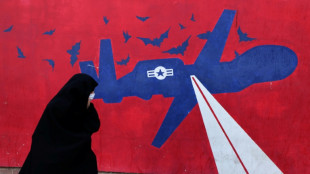
-
 From 'watch his ass' to White House talks for Trump and Petro
From 'watch his ass' to White House talks for Trump and Petro
-
Liverpool seal Jacquet deal, Palace sign Strand Larsen on deadline day

-
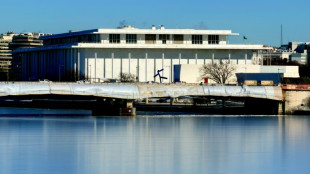 Trump says not 'ripping' down Kennedy Center -- much
Trump says not 'ripping' down Kennedy Center -- much
-
Sunderland rout 'childish' Burnley

-
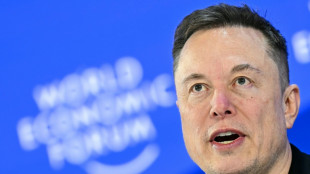 Musk merges xAI into SpaceX in bid to build space data centers
Musk merges xAI into SpaceX in bid to build space data centers
-
Former France striker Benzema switches Saudi clubs

-
 Sunderland rout hapless Burnley
Sunderland rout hapless Burnley
-
Costa Rican president-elect looks to Bukele for help against crime
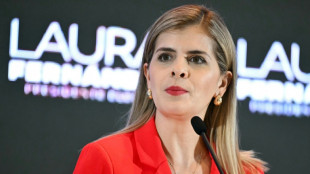
-
 Hosts Australia to open Rugby World Cup against Hong Kong
Hosts Australia to open Rugby World Cup against Hong Kong
-
New York records 13 cold-related deaths since late January

-
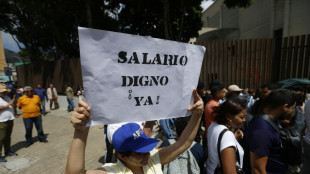 In post-Maduro Venezuela, pro- and anti-government workers march for better pay
In post-Maduro Venezuela, pro- and anti-government workers march for better pay
-
Romero slams 'disgraceful' Spurs squad depth
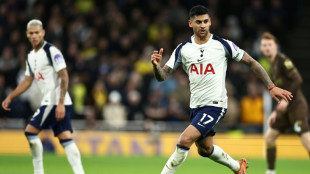
-
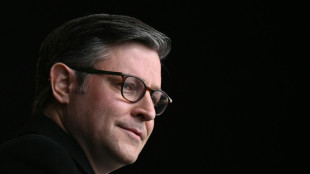 Trump urges 'no changes' to bill to end shutdown
Trump urges 'no changes' to bill to end shutdown
-
Trump says India, US strike trade deal
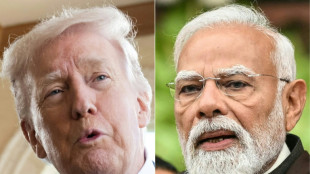

World Bank and IMF climate snub 'worrying', says COP29 presidency
The hosts of the most recent UN climate talks are worried international lenders are retreating from their commitments to help boost funding for developing countries' response to global warming.
Major development banks have agreed to boost climate spending and are seen as crucial in the effort to dramatically increase finance to help poorer countries build resilience to impacts and invest in renewable energy.
But anxiety has grown as the Trump administration has slashed foreign aid and discouraged US-based development lenders such as the World Bank and the International Monetary Fund from focussing on climate finance.
Developing nations, excluding China, will need an estimated $1.3 trillion a year by 2035 in financial assistance to transition to renewable energy and climate-proof their economies from increasing weather extremes.
Nowhere near this amount has been committed.
At last year's UN COP29 summit in Azerbaijan, rich nations agreed to increase climate finance to $300 billion a year by 2035, an amount decried as woefully inadequate.
Azerbaijan and Brazil, which is hosting this year's COP30 conference, have launched an initiative to reduce the shortfall, with the expectation of "significant" contributions from international lenders.
But so far only two -- the African Development Bank and the Inter-American Development Bank -- have responded to a call to engage the initiative with ideas, said COP29 president Mukhtar Babayev.
"We call on their shareholders to urgently help us to address these concerns," he told climate negotiators at a high-level summit in the German city of Bonn this week.
"We fear that a complex and volatile global environment is distracting" many of those expected to play a big role in bridging the climate finance gap, he added.
- A 'worrisome trend' -
His team travelled to Washington in April for the IMF and World Bank's spring meetings hoping to find the same enthusiasm for climate lending they had encountered a year earlier.
But instead they found institutions "very much reluctant now to talk about climate at all", said Azerbaijan's top climate negotiator Yalchin Rafiyev.
This was a "worrisome trend", he said, given expectations these lenders would extend the finance needed in the absence of other sources.
"They're very much needed," he said.
The World Bank is directing 45 percent of its total lending to climate, as part of an action plan in place until June 2026, with the public portion of that spilt 50/50 between emissions reductions and building resilience.
The United States, the World Bank's biggest shareholder, has pushed in a different direction.
On the sidelines of the April spring meetings, US Treasury Secretary Scott Bessent urged the bank to focus on "dependable technologies" rather than "distortionary climate finance targets."
This could mean investing in gas and other fossil fuel-based energy production, he said.
Under the Paris Agreement, wealthy developed countries -- those most responsible for global warming to date -- are obliged to pay climate finance to poorer nations.
Other countries, most notably China, make voluntary contributions.
- Money matters -
Finance is a source of long-running tensions at UN climate negotiations.
Donors have consistently failed to deliver on past finance pledges, and have committed well below what experts agree developing nations need to cope with the climate crisis.
The issue flared up again this week in Bonn, with nations at odds over whether to debate financial commitments from rich countries during the formal meetings.
European nations have also pared back their foreign aid spending in recent months, raising fears that budgets for climate finance could also face a haircut.
At COP29, multilateral development banks (MDBs) led by the World Bank Group estimated they could provide $120 billion annually in climate financing to low and middle income countries, and mobilise another $65 billion from the private sector by 2030.
Their estimate for high income countries was $50 billion, with another $65 billion mobilised from the private sector.
Rob Moore, of policy think tank E3G, said these lenders are the largest providers of international public finance to developing countries.
"Whilst they are facing difficult political headwinds in some quarters, they would be doing both themselves and their clients a disservice by disengaging on climate change," he said.
The World Bank in particular has done "a huge amount of work" to align its lending with global climate goals.
"If they choose to step back this would be at their own detriment, and other banks like the regionally based MDBs would likely play a bigger role in shaping the economy of the future," he said.
The World Bank declined to comment on the record.
D.Schneider--BTB

